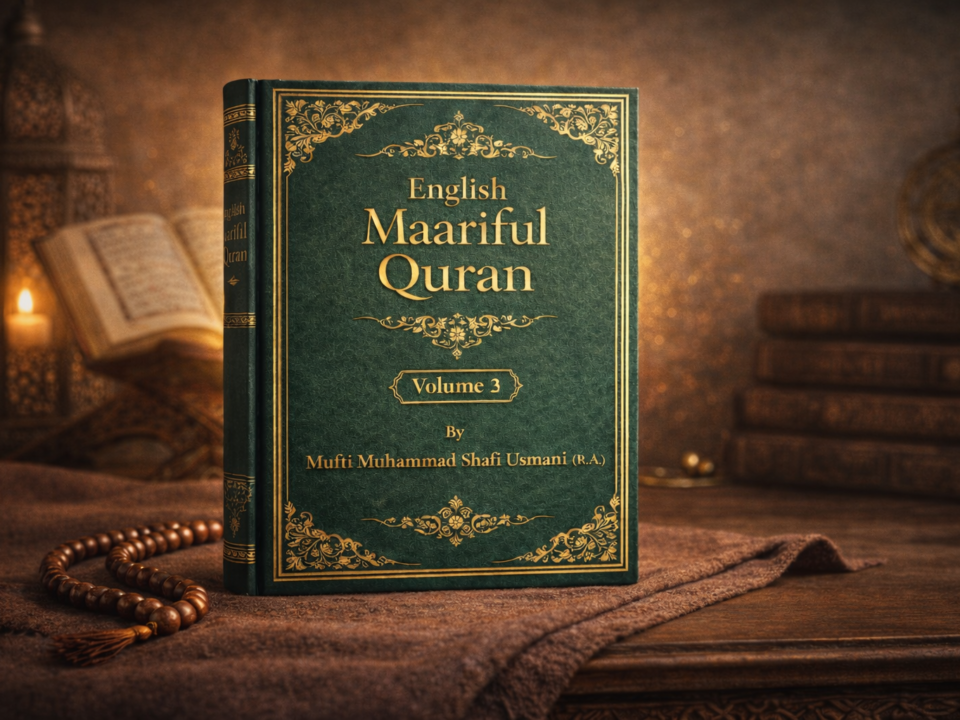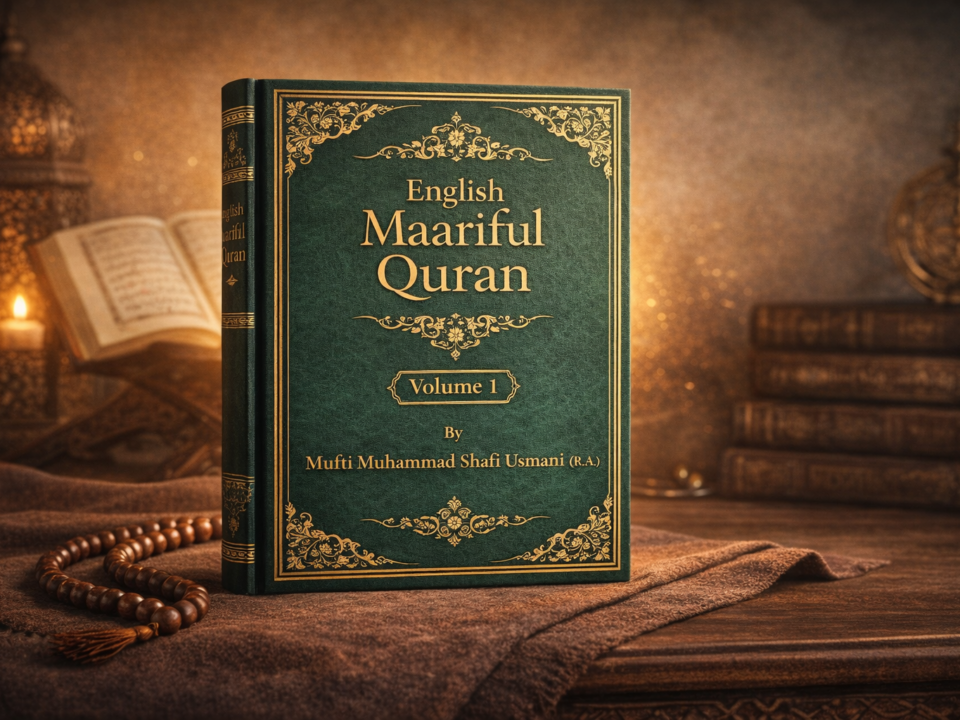The Battle of Jamal: Ali ibn Abi Talib’s (RA) Triumph on the 10th of Jumada al-Thani
On the 10th of Jumada al-Thani, the Islamic world commemorates a pivotal moment in early Islamic history—the Battle of Jamal. This historic battle, fought between the forces of Ali ibn Abi Talib (RA), the fourth Caliph, and a coalition led by Ayesha (RA), Talha (RA), and Zubair (RA), holds profound significance. It not only shaped the course of Islamic governance but also provided valuable lessons about leadership, unity, and conflict resolution within the Muslim community. In this blog post, we will delve into the events of the Battle of Jamal, its historical context, and the enduring lessons it imparts.
Read More: The Battle of the Camel: Ali Ibn Abi Talib (RA) Triumphs on the 22nd Jamada ul Awwal
Historical Context
Understanding the Battle of Jamal requires considering the historical backdrop:
- Aftermath of Caliph Uthman’s Assassination:The assassination of Caliph Uthman Ibn Affan (RA) had led to a power vacuum and turmoil within the Muslim community. The perpetrators were identified with various factions, leading to unrest and division.
- Ali ibn Abi Talib’s (RA) Caliphate:After Uthman’s assassination, Ali (RA), the cousin and son-in-law of the Prophet Muhammad (PBUH), became the fourth Caliph. His caliphate faced challenges from factions demanding retribution for Uthman’s murder.
- Ayesha (RA), Talha (RA), and Zubair (RA):Ayesha, Talha, and Zubair, prominent companions of the Prophet (PBUH), disagreed with Ali’s (RA) leadership and left Medina for Mecca, where they raised their concerns. Later, they moved to Basra, Iraq.
The Battle Unfolds
The Battle of Jamal began when Ayesha (RA), Talha (RA), and Zubair (RA), along with their supporters, raised objections against Ali’s (RA) leadership. The confrontation took place near Basra, Iraq, and it marked the first significant battle among Muslims after the death of the Prophet (PBUH).
Key Events During the Battle:
- Efforts at Resolution:Before resorting to battle, there were attempts at peaceful resolution. Both sides engaged in discussions and sought reconciliation, but their differences could not be bridged.
- Engagement:The battle began with skirmishes and escalated into full-scale combat. Thousands of lives were lost during the conflict.
- Ali’s (RA) Strategy:Ali (RA) displayed remarkable leadership during the battle. He emphasized the preservation of Muslim lives and property, even during the heat of battle.
- Talha (RA) and Zubair (RA):Sadly, both Talha (RA) and Zubair (RA) lost their lives during the battle. Their deaths were deeply lamented by both sides.
- Ayesha’s (RA) Capture:Ayesha (RA), who had been riding a camel during the battle, was eventually captured by Ali’s (RA) forces. She was treated with respect and escorted safely back to Medina.
Lessons from the Battle of Jamal
The Battle of Jamal offers several essential lessons for Muslims:
- Importance of Unity:The battle underscores the critical need for unity within the Muslim community. Internal divisions can lead to conflict and strife, and efforts should be made to resolve disputes through dialogue and peaceful means.
- Leadership Qualities:Ali ibn Abi Talib (RA) displayed exemplary leadership qualities during the battle. His commitment to preserving life and property reflects the principles of justice and mercy in Islam.
- Conflict Resolution:Muslims are encouraged to seek peaceful solutions to conflicts, and efforts at reconciliation should always be prioritized.
- Respect for Companions:The Battle of Jamal highlights the need to show respect and honor to the companions of the Prophet (PBUH), even when differences arise.
- Reflection on History:Reflecting on historical events like the Battle of Jamal can provide insights into how Muslims can navigate challenges and conflicts in the present day.
Conclusion
The Battle of Jamal, fought on the 10th of Jumada al-Thani, serves as a poignant reminder of the challenges faced by the early Muslim community after the passing of the Prophet Muhammad (PBUH). It underscores the importance of unity, leadership, and conflict resolution within the Muslim ummah. The lessons learned from this historical event continue to hold relevance today, emphasizing the value of peaceful dialogue, respect for companions, and the pursuit of justice and mercy in all aspects of life.
Read More: Zain Al Abideen (RA): Birth on 15th Jamada ul Awwal
عنوان: جنگ جمال: 10 جمادی الثانی کو علی ابن ابی طالب رضی اللہ عنہ کی فتح
تعارف
جمعۃ الثانی کی 10 تاریخ کو، اسلامی دنیا ابتدائی اسلامی تاریخ کے ایک اہم لمحے کی یاد مناتی ہے یعنی جنگ جمال۔ چوتھے خلیفہ علی ابن ابی طالب رضی اللہ عنہ کی افواج اور عائشہ رضی اللہ عنہا، طلحہ رضی اللہ عنہ اور زبیر رضی اللہ عنہ کی قیادت میں اتحاد کے درمیان لڑی جانے والی یہ تاریخی جنگ بہت زیادہ اہمیت کی حامل ہے۔ اس نے نہ صرف اسلامی طرز حکمرانی کی تشکیل کی بلکہ مسلم کمیونٹی کے اندر قیادت، اتحاد اور تنازعات کے حل کے بارے میں قیمتی سبق بھی فراہم کیا۔ اس بلاگ پوسٹ میں، ہم جمال کی جنگ کے واقعات، اس کے تاریخی سیاق و سباق اور اس سے ملنے والے پائیدار اسباق کا جائزہ لیں گے۔
تاریخی سیاق و سباق
جنگ جمال کو سمجھنے کے لیے تاریخی پس منظر پر غور کرنے کی ضرورت ہے:
خلیفہ عثمان کے قتل کے بعد: خلیفہ عثمان ابن عفان رضی اللہ عنہ کے قتل نے مسلم کمیونٹی کے اندر اقتدار کا خلا اور انتشار پیدا کر دیا تھا۔ مجرموں کی شناخت مختلف دھڑوں سے کی گئی، جس سے بدامنی اور تقسیم ہوئی۔
علی ابن ابی طالب رضی اللہ عنہ کی خلافت: عثمان کے قتل کے بعد، علی رضی اللہ عنہ، رسول اللہ صلی اللہ علیہ وسلم کے چچازاد بھائی اور داماد، چوتھے خلیفہ بنے۔ ان کی خلافت کو عثمان کے قتل کے بدلے کا مطالبہ کرنے والے گروہوں کی طرف سے چیلنجوں کا سامنا کرنا پڑا۔
عائشہ رضی اللہ عنہا، طلحہ رضی اللہ عنہ، اور زبیر رضی اللہ عنہ: عائشہ، طلحہ، اور زبیر، رسول اللہ صلی اللہ علیہ وسلم کے ممتاز اصحاب، علی رضی اللہ عنہ کی قیادت سے اختلاف کرتے ہوئے مدینہ سے مکہ چلے گئے، جہاں انہوں نے اپنے خدشات کا اظہار کیا۔ . بعد میں وہ عراق کے شہر بصرہ چلے گئے۔
جنگ کھل جاتی ہے۔
جنگ جمال کا آغاز اس وقت ہوا جب عائشہ رضی اللہ عنہا، طلحہ رضی اللہ عنہ اور زبیر رضی اللہ عنہ نے اپنے حامیوں کے ساتھ علی رضی اللہ عنہ کی قیادت پر اعتراض کیا۔ یہ معرکہ بصرہ، عراق کے قریب پیش آیا، اور یہ رسول اللہ صلی اللہ علیہ وسلم کی وفات کے بعد مسلمانوں کے درمیان پہلی اہم جنگ تھی۔
جنگ کے دوران اہم واقعات:
حل کی کوششیں: جنگ کا سہارا لینے سے پہلے، پرامن حل کی کوششیں ہوتی تھیں۔ دونوں فریقین نے بات چیت کی اور مفاہمت کی کوشش کی لیکن ان کے اختلافات ختم نہ ہوسکے۔
مشغولیت: لڑائی جھڑپوں سے شروع ہوئی اور پورے پیمانے پر لڑائی میں بڑھ گئی۔ اس لڑائی کے دوران ہزاروں جانیں ضائع ہوئیں۔
علی رضی اللہ عنہ کی حکمت عملی: علی رضی اللہ عنہ نے جنگ کے دوران شاندار قیادت کا مظاہرہ کیا۔ اس نے جنگ کی گرمی کے دوران بھی مسلمانوں کی جان و مال کے تحفظ پر زور دیا۔
طلحہ رضی اللہ عنہ اور زبیر رضی اللہ عنہ: افسوس کی بات ہے کہ طلحہ رضی اللہ عنہ اور زبیر رضی اللہ عنہ دونوں جنگ کے دوران اپنی جان سے ہاتھ دھو بیٹھے۔ ان کی موت پر دونوں جانب سے گہرے رنج و غم کا اظہار کیا گیا۔
عائشہ رضی اللہ عنہا کی گرفتاری: عائشہ رضی اللہ عنہا، جو جنگ کے دوران اونٹ پر سوار تھیں، بالآخر علی رضی اللہ عنہ کی فوجوں نے پکڑ لیا۔ اس کے ساتھ احترام کے ساتھ سلوک کیا گیا اور اسے بحفاظت مدینہ واپس لے جایا گیا۔
جنگِ جمال سے سبق
جمال کی جنگ مسلمانوں کے لیے کئی ضروری اسباق پیش کرتی ہے:
اتحاد کی اہمیت: یہ جنگ مسلم کمیونٹی کے اندر اتحاد کی اہم ضرورت پر زور دیتی ہے۔ اندرونی تقسیم تنازعات اور جھگڑوں کا باعث بن سکتی ہے اور تنازعات کو مذاکرات اور پرامن طریقوں سے حل کرنے کی کوشش کی جانی چاہیے۔
قائدانہ خصوصیات: علی ابن ابی طالب رضی اللہ عنہ نے جنگ کے دوران مثالی قائدانہ خصوصیات کا مظاہرہ کیا۔ جان و مال کے تحفظ کے لیے ان کی وابستگی اسلام میں عدل اور رحم کے اصولوں کی عکاسی کرتی ہے۔
تنازعات کا حل: مسلمانوں کو تنازعات کا پرامن حل تلاش کرنے کی ترغیب دی جاتی ہے، اور مصالحت کی کوششوں کو ہمیشہ ترجیح دی جانی چاہیے۔
صحابہ کرام کا احترام: جنگِ جمال میں اصحابِ رسول کی عزت و تکریم کی ضرورت کو اجاگر کیا گیا ہے، یہاں تک کہ جب اختلافات پیدا ہوں۔
تاریخ پر غور و فکر: جنگ جمال جیسے تاریخی واقعات پر غور کرنے سے یہ بصیرت مل سکتی ہے کہ مسلمان موجودہ دور میں چیلنجوں اور تنازعات کو کس طرح آگے بڑھا سکتے ہیں۔
نتیجہ
10 جمادی الثانی کو لڑی جانے والی جنگ جمال، پیغمبر اسلام (ص) کی رحلت کے بعد ابتدائی مسلم کمیونٹی کو درپیش چیلنجوں کی ایک پُرجوش یاد دہانی کے طور پر کام کرتی ہے۔ یہ امت مسلمہ کے اندر اتحاد، قیادت اور تنازعات کے حل کی اہمیت کو واضح کرتا ہے۔ اس تاریخی واقعہ سے سیکھے گئے اسباق آج بھی مطابقت رکھتے ہیں، جس میں پرامن مکالمے کی اہمیت، ساتھیوں کا احترام، اور زندگی کے تمام پہلوؤں میں انصاف اور رحم کی تلاش پر زور دیا گیا ہے۔




English Maariful Quran Volume 4 by Mufti Muhammad Shafi Usmani (R.A.) – English Translation and Tafseer Book Cover
English Maariful Quran Volume 4 – Tafseer by Mufti Muhammad Shafi Usmani (R.A.)
Read more